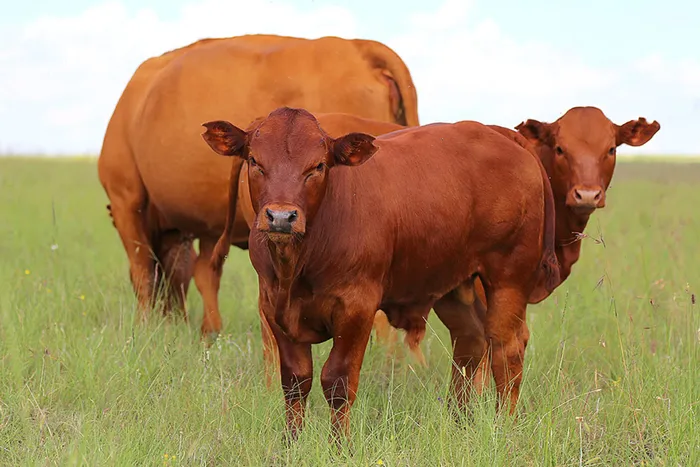Foot-and-mouth disease: South Africa’s agricultural response to ongoing outbreaks

The Department of Agriculture is seeking new methods to manage the ongoing foot-and-mouth disease outbreaks in South Africa.
Image: File
The Department of Agriculture is looking at other avenues to contain and eliminate foot-and-mouth disease (FMD), with current outbreaks in KwaZulu-Natal, Mpumalanga and Gauteng, after tried and trusted methods are ineffective.
The Northern Cape and Western Cape remain FMD-free.
This was revealed when the department gave an update to the portfolio committee on agriculture on the status of FMD in the country.
Department of Agriculture’s Dr Mike Modisane explained that outbreaks in KZN have been simmering since 2021, but to a large extent, until late last year, they managed to contain the outbreaks until the disease started moving towards the west, particularly this year, and they are aware that auctions have been playing a major role in spreading the disease Particularly, the auction in Utrecht seemed to have played a significant role in spreading the disease towards the west.
“When we noticed that the auction had taken place in February, and there was disease, we started doing trace forwards for the animals that were sold from that auction and we followed up some, as far as Mpumalanga. There were some animals that we sent to other areas that we followed up,” Modisane explained.
He said they found infection on a farm in the southern part of Mpumalanga.
“Just as we were confirming this outbreak last week in Mpumalanga, we also got requests to allow some samples to be tested because some animals were brought in reportedly from the Heidelberg auction and they were showing clinical signs in Gauteng. We gave permission for the samples to be tested and they came back positive,” Modisane said.
He said trace forwards were done in Gauteng, but the Heidelberg auction did not cause the Gauteng outbreak.
“(Yesterday) I received confirmation that this outbreak… seems to be related to the Utrecht auction,” Modisane said.
Modisane explained that once there is suspicion or confirmation of FMD, they place the farm under quarantine and perform clinical examination and collect samples to help confirm the disease.
If there is a need for control of movement, the minister will declare a Disease Management Area, which is effective in reducing the spread of the disease.
He said they also vaccinate in affected herds to decrease the viral load. Pre-emptive vaccination is also conducted in high-risk areas with the Director of Animal Health’s permission.
Additionally, controlled slaughters of feedlots and commercial herds are conducted.
Modisane said challenges include the virus changing behaviour, ranging from ‘classical’ symptoms to the absence of symptoms; spread of FMD through auctions and speculators (move animals). There is no adherence to the Agricultural Produce Agents Council (APAC) rules; difficulty in applying movement control measures; lack of resources on the national and provincial level and; lack of individual animal identification and traceability make it difficult to trace back from known outbreaks and timely find the source of infection.
Deputy Director-General for Agricultural Production, Biosecurity and Natural Resources Management, Dipepeneneng Serage, said that so far their measures in response to the outbreak are proving ineffective.
“We do not see outbreaks happening mainly in the communal areas. It is confirmed that the problem is with the auctioneers,” Serage stated.
He said they have lined up a series of meetings for consultation. It will include the Department of Agriculture, so every province can be receptive to the measures they will take.
He said they will meet with auctioneers, APAC and the livestock industry and consult with them and allow them to understand and make inputs before they take steps.
Serage explained that all animals that are to be sold at auctions have to be individually identified. In addition to the brand mark, they will add individual animal ID, similar to identity numbers. If they are not identified, they will not be accepted at the auction.
“We’ve already identified areas around Phalaborwa, Mpumalanga, KZN, where we are going to have to establish new abattoirs where FMD-positive animals are going to be slaughtered.”
Serage said they need to develop regulations to direct auctions and livestock movement in South Africa.
thobeka.ngema@inl.co.za
